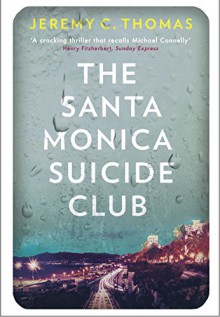
Wikipedia page: New Arabian Knights (1882)
Gutenberg link: New Arabian Knights
I've only read some of Stevenson's works (none of the longer novels yet) and this was one that'd been recommended somewhere for the stories about the Suicide Club, the premise of which sounds like something that could easily be transplanted in a modern piece of fiction. (Check out the adaptations listed on the wikipedia page for Suicide Club. One author transformed it into a Holmes tale.) All of these read very much like many magazine short stories of the time - think how Doyle's Sherlock Holmes stories read, heavy on action adventure first and characterization a bit later, in small doses if at all. It's mostly all about the action.
Aside: It's still kinda weird to have grown up reading Doyle's Holmes and to then bump into people who view them all as one complete thing with an indepth world instead of a world you only learn about in bits and pieces dropped in many stories. Because Holmes didn't hop into life having all that - Doyle was also churning out short stories in bits, like many other authors of the time, most of whom didn't foresee carrying on with the same characters for a series. Of course building a headcannon with Holmes isn't at all a modern thing - decades ago I bought my dad a book of the complete Holmes stories (hardback and insanely heavy) with intricate and detailed footnotes that indicated that whoever was writing them was treating Holmes as a historical figure that did actually exist. Never could tell if that was tongue in cheek or an author who genuinely believed. And yes, there are people that do believe Holmes was a real person - not just influenced by Joseph Bell, etc.
Anyway, if you've never read short stories and realized they were all written for separate publication, this is a kind of fun example. The Suicide Club series (really only 2 stories when combined) sort of work well together, even though the whole "I am framing this as written by an Arabian author who told me the story" doesn't really seem fleshed out. Even Stevenson agrees, as in the last tale he gives that up completely:
"As for [character in story], that sublime person, having now served his turn, may go, along with the Arabian Author, topsy-turvy into space."
So by the last couple of stories the Arabian Author framing is gone, as is the Suicide Club - so expect that part to be brief. I'll note that for some reason one of the later stories, the Pavilion on the Links, is one that shows up in multiple short story collections - it's action/adventure with an Italian gang in pursuit of revenge, and a love triangle in which you know who's the good guy, because obvious good guy is obvious. But I sort of enjoyed it anyway because Stevenson does have fun writing atmospheric locations.
So if the stories of this period interest you this is worth it, especially for the premise of the Suicide Club. You'll totally see why this is definite screenwriter fodder.


 Log in with Facebook
Log in with Facebook 








